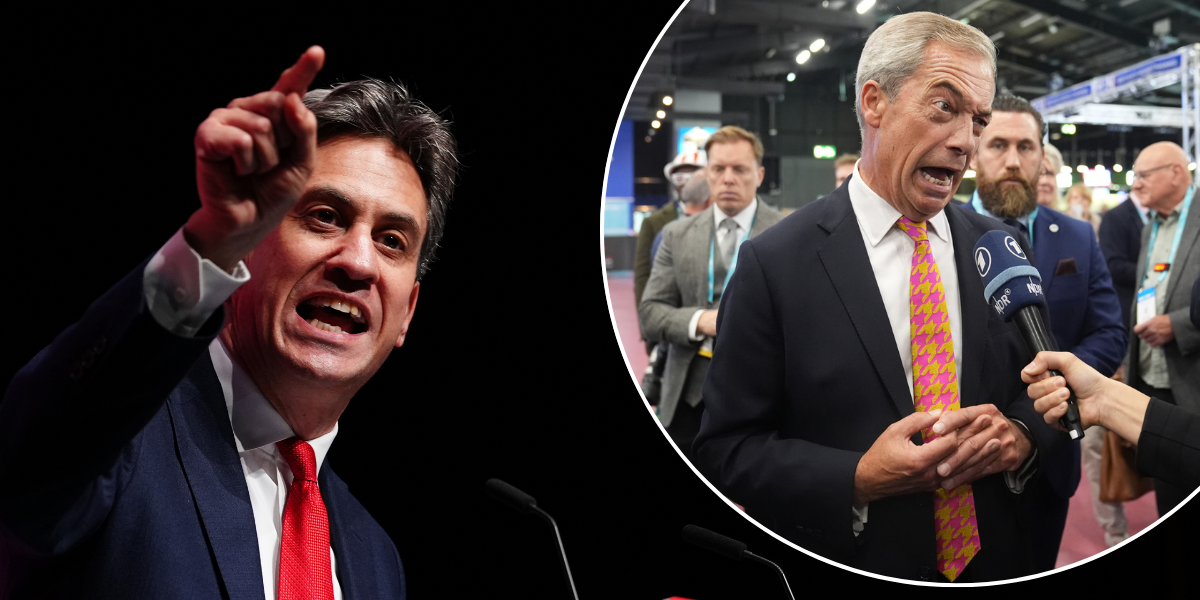The Controversy Surrounding UK’s Biomass Import Plans: Nigel Farage’s Outrage
In a surprising twist in the ongoing debate over the United Kingdom’s energy strategy, former Brexit leader Nigel Farage has publicly condemned speculated government plans to import biomass fuel from countries like North Korea and Afghanistan. This revelation has sparked a wave of criticism, raising questions about the credibility of the UK’s climate strategy and its commitment to sustainable energy practices.
The Context of Biomass in the UK
Biomass has emerged as a significant player in the UK’s efforts to decarbonize various sectors of the economy. As part of its commitment to achieving net-zero carbon emissions, the UK government has recognized the need to import biomass fuels to meet growing energy demands. A government document released during Prime Minister Rishi Sunak’s administration emphasized the importance of sourcing biomass from "trusted partners and allies" to ensure energy security and stabilize energy costs.
However, the recent discussions about sourcing biomass from countries with questionable human rights records and environmental practices have raised eyebrows. Farage’s vehement criticism highlights the broader concerns surrounding the implications of such sourcing strategies.
Farage’s Reaction: "Completely Nuts"
In a social media post, Farage expressed his disbelief at the prospect of importing fuel from North Korea and Afghanistan, labeling the plans as "completely nuts." His comments reflect a growing sentiment among critics who argue that relying on these nations undermines the UK’s climate goals and raises ethical questions about the sources of energy.
The Labour government, under the leadership of Ed Miliband as Energy Secretary, has been tasked with navigating these complex issues. Miliband has pledged to position the UK as a global leader in climate action, but the proposed sourcing strategies have cast a shadow over these ambitions.
The List of Potential Biomass Sources
A recent assessment led by Mary Booth, director of the Partnership for Policy Integrity, revealed a list of potential biomass sources that included not only North Korea and Afghanistan but also Bhutan and the Maldives. Booth described the plan as "bonkers," particularly in light of the increasing climate challenges faced by many regions, including famine due to weather-induced crop failures.
Critics argue that the lack of transparency regarding how these foreign deals would be structured raises significant concerns. Engaging with nations like North Korea, known for its authoritarian regime and lack of adherence to international norms, poses ethical dilemmas that cannot be overlooked.
The Need for Sustainable Biomass
The UK has positioned itself as a global leader in biomass policy and technology, with approximately one-third of its biomass for renewable energy production sourced internationally in 2022. This includes wood pellets, straw, and other plant-based materials. However, experts warn that the current supply of biomass is insufficient to meet the ambitious targets set by the government.
A policy director at Green Alliance has pointed out that there simply isn’t enough biomass available to satisfy the UK’s energy needs. The ambitious levels of biomass required to achieve net-zero emissions may not be feasible, raising questions about the sustainability of the UK’s energy strategy.
Environmental and Ethical Concerns
Beyond the logistical challenges of sourcing biomass, there are significant environmental and ethical concerns associated with burning biomass. Critics have raised alarms about the impact on agriculture, air quality, and biodiversity within the UK. Additionally, there are fears that sourcing biomass from certain regions could violate indigenous land rights, further complicating the ethical landscape of the UK’s energy strategy.
Conclusion: A Call for Clarity and Responsibility
As the UK navigates the complexities of its energy strategy, the controversy surrounding the potential import of biomass from countries like North Korea and Afghanistan serves as a stark reminder of the challenges ahead. With voices like Nigel Farage’s amplifying concerns, it is crucial for the government to provide clarity on its sourcing strategies and ensure that its climate goals are pursued responsibly and ethically.
The path to achieving net-zero emissions is fraught with challenges, but the UK must remain committed to sustainable practices that uphold its values and protect the environment. As the debate continues, the government must engage in transparent discussions about its energy policies and the implications of sourcing biomass from contentious regions. Only then can the UK hope to maintain its credibility on the global stage as a leader in climate action.
